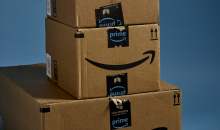The Lush Prize is now in its eighth year, but this is the first time that three of the winning projects have been based around ‘big data’ projects designed to replace animal tests.
‘Big data’ is a simplified name for computational toxicology, making computer-based health models on the basis of the large amounts of data being routinely gathered in the modern world. It is seen as one of the main potential replacements for animal testing.
Big data awards
The process of extracting and analysing large quantities of data has been aided by advances in artificial intelligence and machine learning. The ‘mining’ of Big data projects lining up to replace animal testsbig data can often find predictive trends or patterns far better and faster than traditional animal testing.
The Lush Prize has five main categories, and nominations are open to scientists and campaigners based anywhere in the world.
The three big data winners were all using computer databases to successfully predict the toxicity of chemicals for humans: Dr Tim Allen of Cambridge University won the prestigious £50,000 Science Prize, and two of the five Young Researcher awards were for big data, Dr Domenico Gadelata of Milan’s Mario Negri Institute and Edoardo Carnesecchi of Utrecht University.
Lush Prize Director Rob Harrison:
“The judges were particularly excited that this year’s shortlist contained a new wave of projects which were modelling the cellular pathways of toxic molecules in their datasets.
This combination of 21st century technologies showed perhaps the greatest promise yet for a widespread replacement of older and less reliable animal models on a global scale”







